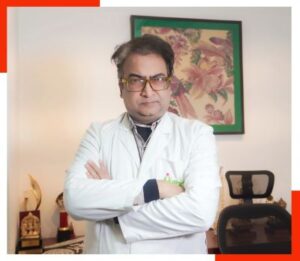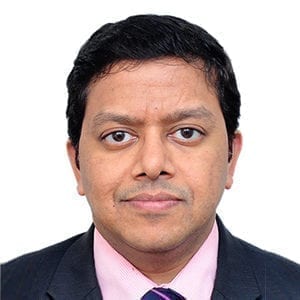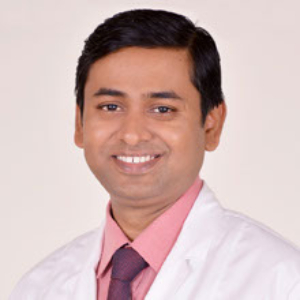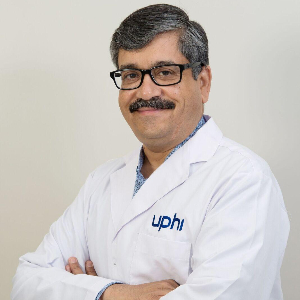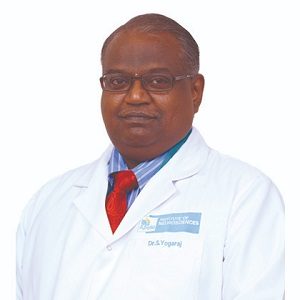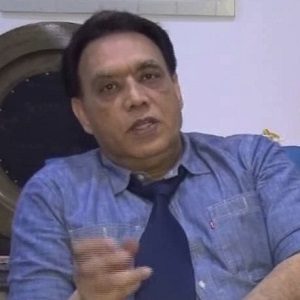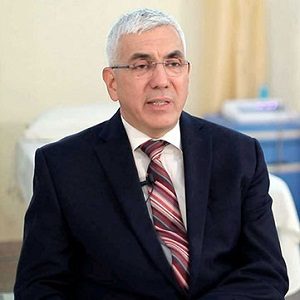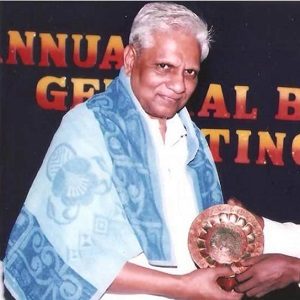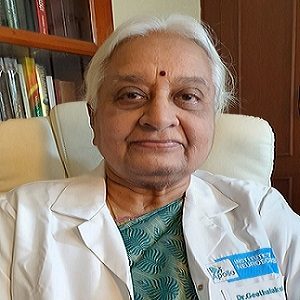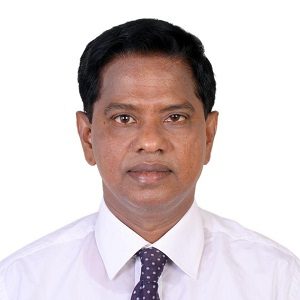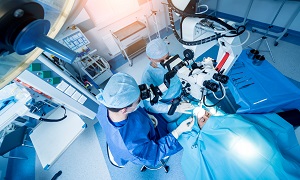Best Stroke surgery Surgeons in India
- Neurologist
- Over 20 years' of experience
- Fortis Memorial Research Institute
Profile Highlights:
- Dr. Praveen Gupta is one of India’s top Neurologists, who is currently serving as the Principal Director & Unit Head of Neurology at Fortis Memorial Research Institute, Gurugram.
- Over the course of his 23-years career, Dr. Gupta has made a lasting impact on the field of neurological treatment.
- Among his many firsts, Dr. Gupta founded the first-ever stroke centre in Gurugram and pioneered the use of single-arm mechanical thrombolysis, which completely changed the way strokes are treated in the area.
- He also pioneered Deep Brain Stimulation (DBS) treatments for Epilepsy and Parkinson’s disease, raising the bar for neurological care.
- Top Neurologist | Max Hospital, Saket, New Delhi, India
- 15+ Years Years Experience
- Max Super Specialty Hospital, Saket, New Delhi
Profile Highlights:
- Dr. Puneet Agarwal is one of the renowned neurologists in India known for his outstanding performance in the field of neuroscience.
- He is considered to be one of the first few doctors to successfully complete the Inflammatory Genes study in stroke patients.
- Dr. Agarwal is highly experienced in the Management of Parkinson’s disease, Deep Brain Stimulation, and is currently functioning as the Director of the Neurology Department of Stroke and Dementia at Max Super Speciality Hospital, Saket in New Delhi.
- Top Neurologist | Max Hospital, Saket, New Delhi, India
- 13+ Years Experience
- Max Super Specialty Hospital, Saket, New Delhi
Profile Highlights:
- Dr. Mukesh Kumar is a highly accomplished neurologist currently affiliated with Max Healthcare. He specializes in a range of neurological disorders and has made significant contributions in his field.
- His expertise spans across various areas, including Deep Brain Stimulation, Movement Disorders, Myasthenia Gravis, Parkinson’s Disease, etc.
- Additionally, Dr. Mukesh Kumar holds an impressive academic record. He received his MBBS and MD (Medicine) degree from IMS, BHU, Varanasi, followed by DNB (Medicine) and DM (Neurology) from AIIMS, New Delhi.
- Neurologist, Gurugram, India
- Over 20 years’ experience
- Artemis Hospital, Gurgaon
Profile Highlights:
- Dr. Sumit Singh is a well known Neurologist in India currently associated with Artemis Hospital in Gurgaon as the Chief of the department of Neurology.
- He has an experience of over 20 years and specializes in the treatment and management of headache and movement disorders.
- He is the first Neurologist in India to introduce BT for the treatment of headache in 2002 and also used it for trigeminal neuralgia treatment.
- He has years of knowledge and experience in the treatment of neuromuscular disorders and is one of the best neurologists for the management of patients who have undergone Deep Brain Stimulation surgery.
- Dr. Singh is known to be the best for the planning and management of patients with Parkinson’s disease. He also provides treatment for patients suffering from Multiple sclerosis, Myasthenia gravis and Polymyositis.
- Neurologist, Chennai, India
- Over 25 years’ experience
- Apollo Hospitals Greams Road
Profile Highlights:
- Dr. S. Yogaraj is an experienced Neurologist in India, having over 25 years of experience in the field.
- He specializes in treating emergency neurology conditions like stroke, neuromuscular disorders, CNS infections, Peripheral Nerve issues, etc.
- Dr. Yogaraj is also instrumental in designing, implementing, and reporting electrophysiological training. He trained physicians, neurologists, and paramedical staff.
- Top Neurologist | Apollo Hospital, New Delhi, India
- 26+ Years Experience
- Indraprastha Apollo Hospital, New Delhi
Profile Highlights:
- Dr. Anoop Kohli is one of the well-known Neurologists in India, having 26 years of clinical experience.
- He is interested in the treatment of Migraine, Brain Haemorrhage, Paralysis, Parkinson’s disease, Stroke, Paraplegia, Fits, and Meningitis.
- Dr. Kohli is currently a Senior Consultant Neurologist at Apollo Hospital, New Delhi, and a pioneer, who first devised an intravenous thrombolytic treatment and developed the first Trans-Cranial Doppler Lab of India at Apollo Hospitals, New Delhi.
- Dr. Anoop Kohli is also proficient in research. He has contributed 40 publications to various national and international journals.
- Top Neurologist | Apollo Hospital, New Delhi, India
- 27+ Years Experience
- Indraprastha Apollo Hospital, New Delhi
Profile Highlights:
- Dr. Mukul Varma is one of the best Neurologists in India, specialized in treating brain and spine disorders. With over 27 years of experience, the doctor has expertise in Parkinson’s disease, Speech and movement disorder, headache, and multiple sclerosis treatment.
- He is working as a senior consultant Neurologist with the prestigious Apollo Hospital, New Delhi.
- Dr. Varma is excellent at diagnosing and providing holistic treatment for meningitis, brain stroke, epilepsy, brain cancer, and many others. The doctor also performs stereotactic procedures for Brachial Plexus injuries.
- He has contributed 20 literary works to medical journals of national and international repute.
- Neurologist, Chennai, India
- Over 34 years’ experience
- Apollo Hospitals Greams Road
Profile Highlights:
- Dr. Dhanaraj M is a recognized neurologist in India, currently practicing as a Senior Consultant Neurologist at Apollo Hospital, Greams Road, Chennai.
- He has dedicated 35+ years to managing neuromuscular and neurological disorders and academics. He is proficient in treating conditions such as Alzheimer’s disease, Meningitis, Meniere’s Disease, Brain infections, and Light-headedness.
- As an experienced neurologist, he conducts a range of procedures such as EEG for brain activity monitoring, Nerve Conduction Studies to evaluate nerve function, Lumbar Puncture for cerebrospinal fluid testing, MRI for detailed brain imaging, and EMG to assess muscle health.
- Neurologist, Chennai, India
- Over 34 years’ experience
- Apollo Hospitals Greams Road
Profile Highlights:
- Dr. Geetha Lakshmipathy is a highly regarded neurologist with over 34 years of experience. Her experience stretches across academic, research, clinical, and administrative work.
- She is currently working with Apollo Hospital, Chennai as a Senior Consultant Neurologist following her retirement from Madras Medical College and Government General Hospital.
- Dr. Lakshmipathy specializes in treating a wide range of neurological conditions, including Neurological Dysfunction, Neuromuscular Disorders, Brain Aneurysm Surgery, and VP Shunt placement.
- Neurologist, Chennai, India
- Over 30 years’ experience
- Apollo Hospitals Greams Road
Profile Highlights:
- Dr. Rajendran S is a highly respected neurologist at Apollo Hospitals, Greams Road in Chennai, with over three decades of experience.
- Dr. Rajendran is known for his personalized treatment plans tailored to each patient’s needs, utilizing specialized diagnostic tools like polysomnography.
- Specializing in Alzheimer’s disease, migraine, epilepsy, BT treatments for movement and headache disorders, and employing advanced electrophysiology techniques, he is sought after for his expertise.
- Dr. Rajendran holds specialized training as a neuropsychiatrist from the United Kingdom and is a distinguished member of the Royal College of Physicians of Ireland.
Best Stroke Surgery Hospitals in India
- City: Gurugram, India
Hospital Highlights:
- One of India’s best and largest multi-specialty hospitals, Medanta was built with the aim to bring India to the highest standards of medical care. The hospital has been providing the best medical services to its patients, since its inception, with care, commitment, and compassion.
- Equipped with 1250 beds, the hospital was founded by Dr. Naresh Trehan in the year 2009 with an aim to provide the best medical care at affordable costs. The hospital is spread across 43 acres and includes 45 operation theatres and 350 beds dedicated solely to ICU. The hospital includes over 800 doctors, and more than 22 specialty departments and has a dedicated floor for individual specialty in order to offer the best services under one roof.
- The hospital is considered one of the premier institutes in India for Cardiac Care and includes staffs and members of high caliber. The hospital has 6 distinct centers of excellence.
- City: Gurugram, India
Hospital Highlights:
- Artemis Hospital, established in 2007 in Gurugram, India, is a leading multi-specialty institution known for its excellence in patient care and advanced medical technology, offering comprehensive services across specialties like Cardiology, Oncology, Neurology, Orthopedics etc.
- Renowned for its patient-focused care, Artemis Hospital combines state-of-the-art infrastructure with a team of internationally trained doctors and surgeons, ensuring the highest standards of medical treatment.
- Accredited by JCI and NABH, Artemis Hospital meets global healthcare quality and safety standards, reflecting its commitment to providing compassionate, personalized care.
- The hospital is recognized for utilizing cutting-edge diagnostic and ther*peutic techniques, ensuring patients receive accurate diagnoses and effective treatments tailored to their needs.
- City: Chennai, India
Hospital Highlights:
- The Apollo Proton Cancer Centre in Chennai is the most sought-after private cancer hospital in India. It is an integrated facility that provides cutting-edge, all inclusive cancer treatment to patients all over the globe.
- The hospital is a part of the renowned Apollo Group which has a large network of over 74 hospitals in India and across the globe. Out of the 74 hospitals, 21 of them are cancer centres. However, Apollo Proton Cancer Centre is the only cancer hospital to have JCI accreditation.
- The Centre, which was established on the principles of excellence and expertise, unites a formidable medical staff led by some of the most illustrious figures in cancer treatment.
- The hospital follows the global ASTRO Model Policy. It is the same global policy which is followed by countries like USA, UK, and Europe.
- Apollo Proton Cancer Centre is among the very few hospitals in India to receive patients from First World countries such as USA, Canada, New Zealand, Australia, Singapore, Thailand, etc.
- Apart from that, it is also the first hospital in Chennai to receive patients from several countries like Uzbekistan, Kazakhstan, Turkmenistan, Georgia, Armenia, Azerbaijan, SAARC countries (Bangladesh, Nepal, Sri Lanka, Maldives, Bhutan, Afghanistan, and Pakistan), South Africa, Turkey, Egypt, etc.
- In fact, there is a dedicated team at the Apollo Proton Cancer Centre that serves only international patients. Thus, on a monthly basis, the Centre receives patients from across 32 countries.
- Moreover, there are certain treatments in Apollo Proton Cancer Centre that are not available in any other centre. APCC addresses all types of possible cancers that are usually not covered by any other centre.
- City: New Delhi, India
Hospital Highlights:
- Over the last 33 years, the Fortis Escorts Heart Institute has set new standards in cardiac treatment with groundbreaking research. It is now known around the world as a centre of expertise for Cardiac Bypass Surgery, Interventional Cardiology, Non-invasive Cardiology, Paediatric Cardiology, and Paediatric Cardiac Surgery.
- The hospital has cutting-edge laboratories that perform a wide range of diagnostic tests in Nuclear Medicine, Radiology, Biochemistry, Haematology, Transfusion Medicine, and Microbiology.
- Fortis Escorts Heart Institute boasts a diverse group of bright and experienced doctors who are backed up by a team of highly qualified, experienced, and devoted support professionals as well as cutting-edge equipment such as the recently installed Dual CT Scan.
- Approximately 200 cardiac doctors and 1600 personnel currently collaborate to manage over 14,500 admissions and 7,200 emergency situations each year. The hospital now has a 310-bed infrastructure, as well as five cath labs and a slew of other world-class amenities.
- City: Gurugram, India
Hospital Highlights:
- Fortis Memorial Research Institute (FMRI) is a premier multi-super-specialty, quaternary care hospital, known for its exceptional international faculty, top-tier clinicians, super-sub-specialists, and specialized nurses, all supported by cutting-edge technology.
- It is the flaship hospital of Fortis Healthcare Limited, part of IHH Healthcare Berhad, a leading integrated healthcare services provider in India. As one of the country’s largest healthcare organizations, Fortis operates 28 healthcare facilities with over 4,500 operational beds (including O&M facilities) and more than 400 diagnostic centers (including joint ventures).
- Recognized as one of the top hospitals in India, FMRI serves as a leading referral center and aspires to be the ‘Mecca of Healthcare’ for India and beyond. Its 11-acre campus is a testament to its commitment to providing world-class healthcare.
- Accredited by JCI and NABH, FMRI is dedicated to maintaining the highest standards of healthcare quality and safety, ensuring that every patient receives the best possible care. The hospital’s reputation is further enhanced by its state-of-the-art facilities and innovative medical practices.
- City: New Delhi, India
Hospital Highlights:
- The Indian Spinal Injuries Center (ISIC), provides state-of-the-art facilities for the management of all types of spinal ailments.
- Staffed with internationally trained, acclaimed, and dedicated spine surgeons, the hospital provides cutting-edge medical & surgical technology. The hospital provides comprehensive management of spinal injury, back pain, spinal deformities, tumors, osteoporosis, etc.
- The hospital performs motion-preserving spine surgeries including disc replacement and dynamic fixation, and minimally invasive spine surgeries such as endoscopic disc excision.
- The orthopedic service of the hospital covers all orthopedic ailments including trauma, joint diseases & replacements, oncology, pediatric orthopedics & upper limb ailment.
- City: Faridabad
Hospital Highlights:
In the sprawling city of Faridabad, where healthcare needs are diverse and ever-evolving, one institution has consistently stood out as a beacon of excellence in the field of medicine—Marengo Asia Hospital. Established with a vision to provide world-class healthcare services to the community it serves, Marengo Asia Hospital has emerged as a trusted name synonymous with quality, compassion, and innovation in healthcare.
- City: New Delhi, India
Hospital Highlights:
- Indraprastha Apollo Hospital is a 700-bedded multispecialty hospital in the heart of the capital of India. It is a part of Apollo Hospital group, one of India’s most reputed healthcare chains. Indraprastha Apollo Hospital has been accredited by Joint Commission International, making it the first internationally accredited hospital in the country in 2005.
- There are 52 specialties in the hospital with one of the best cardiology centers in the country. The hospital is also equipped with State of the art infrastructure facilities with the largest Sleep Lab in Asia and the largest number of ICU bed facilities in India.
- The latest and highly advanced technologies that are installed in the hospital include Da Vinci Robotic Surgery System, PET-MR, PET-CT, Cobalt-based HDR, Brain Lab Navigation System, Tilting MRI, Portable CT scanner, 3 Tesla MRI, 128 Slice CT scanner, DSA Lab, Endosonography, Hyperbaric Chamber and Fibro scan.
- City: New Delhi, India
Hospital Highlights:
- One of the well-regarded providers in India committed to the highest standards of clinical excellence and patient care, Max Super Specialty Hospital is a part of Max Healthcare, which is the second-largest healthcare chain in India. Regarded as one of the most well-regarded healthcare providers in the country, Max Super Specialty Hospital is committed to the highest standards of clinical excellence as well as patient care. The hospital is also equipped with the latest technology as well as cutting-edge research. The hospital is known to deliver and ensure the highest level of patient care.
- The hospital has more than 500 beds and offers treatment for over 35 specialties. The hospital also holds the credit of having installed the first Brain Suite in Asia. This is a highly advanced Neurosurgical machine that allows MRI to be taken while surgery is ongoing.
- Other advanced and latest technologies are also installed in the hospital such as the 1.5 Tesla MRI machine, 64 Slice CT Angiography, 4D ECHO, LINAC, and 3.5T MRI machine.
- City: Kolkata, India
Hospital Highlights:
- Founded in 2017, the HCG EKO Cancer Centre is a committed, all-inclusive cancer care facility in Kolkata.
- The hospital was collaboratively established by India’s leading cancer care provider HCG (HealthCare Global Enterprises Ltd.), and EKO Diagnostic Pvt. Ltd., a top diagnostic and imaging chain in Eastern India.
- With 88 beds, the hospital provides a full spectrum of services including diagnosis, prevention, screening, second opinions, treatment, rehabilitation, follow-up, and palliative care.
- Additionally, the hospital contains a day-care chemotherapy ward, Neutropenic ward, medical ICU, pharmacy, blood bank, and an IPD wing.
- At HCG EKO Cancer Centre Kolkata, a large team of cancer experts with experience in medical oncology, surgical oncology, radiation oncology, hemato oncology, BMT, and nuclear medicine collaborate to offer a variety of treatment options under one roof.
- Furthermore, the hospital is also known for employing the most advanced radiation technology such as, the Radixact, a next-generation TomoTherapy equipment that provides greater radiation delivery precision.
Stroke
When one of the blood vessels in the brain ruptures and bleeds and the blood supply to the parts of your brain is interpreted, this prevents the brain from receiving essential nutrients and oxygen. This can cause damage as well as the death of brain cells within a few minutes.
A stroke is considered a medical emergency and it is extremely important that prompt treatment is provided to reduce brain damage or other complications.
Fewer people die of stroke today as compared to the past due to advanced treatment.
Symptoms of Stroke
If you or anybody is having a stroke, it is important to pay attention to the symptoms as they begin, as treatment is more effective if it is provided sooner. Some of the signs of a stroke can include:
- Paralysis
- Confusion
- Trouble speaking or understanding
- A feeling or numbness or weakness in the arm, face, and leg on one particular side of the body
- Trouble walking and/or loss of balance
- Slurring speech
- Vision problem
- Severe and sudden headache
- Dizziness
If you see someone with signs of strokes, don’t wait to see if the symptoms stop. Call a local emergency immediately, as the sooner a stroke is treated, the more the chances are that brain damage and disability can be prevented.
Types and causes of Stroke
There are two different causes of stroke: a blocked artery, which is called ischemic stroke; or the leaking and/or bursting or a blood vessel, which is called a hemorrhagic stroke.
Ischemic stroke: This kind of stroke is more common and it occurs when the brain’s blood vessels get narrowed or blocked. This causes the blood flow to get reduced severely. Blocked and narrowed blood vessels are a result of fatty deposits that build up in the blood vessels. It can also be caused by blood clots or other debris that can travel through the bloodstream and lodge in the brain’s blood vessels.
Hemorrhagic Stroke: Hemorrhagic stroke is caused when a blood vessel in the brain leaks and ruptures. Brain hemorrhages can happen due to many conditions that affect the blood vessels. Some of these factors can relate to hemorrhagic stroke:
- Uncontrolled high blood pressure
- Bulges at weak spots in your blood vessel walls
- Overtreatment using blood thinners
- Trauma (such as an accident)
- Protein deposits in the walls of the blood vessel leading to weakness in the vessel wall
- Ischemic stroke leading to hemorrhage
Transient ischemic attack (TIA)-
A transient ischemic attack also referred to as a ministroke, is a temporary period of symptoms that are similar to those that one has in a stroke. It doesn’t cause permanent damage. It can be caused by a temporary decrease in blood supply to the brain, which can last for as little as five minutes.
It is important to seek emergency care, as it is not possible to know whether you had a stroke or TIA by looking at the symptoms alone. If you had a TIA, it could mean you have a partially blocked or narrowed artery that leads to your brain. Having a TIA can increase your risk of having a full-blown stroke.
Diagnosis of Stroke
While assessing a stroke patient, it is important to determine whether the patient is suffering an ischemic or hemorrhagic stroke. Once this is determined, the proper treatment can begin. Uuslaly the first test that is performed is a CT scan or an MRI.
CT scan
CT scanning is the combining of special x-ray equipment with multiple computers to produce images of the inside parts of the body. The CT of the head is used to detect a stroke from a blood clot or bleeding within the train. CT autography might also need to be performed to improve the detection and characterization of stroke.
MRI
MRI is another method, where a powerful magnetic field, radio frequency pulses as well as a computer is used to produce detailed pictures of organs, bones, soft tissues and other internal body structures. It can also be used to image the cerebral vessels which is called MR angiography. Using MRI of the head, brain damage from a stroke can be assessed.
Your doctors might also use other methods to help in determining the type, location and cause of a stroke. These can include blood tests, Electrocardiogram, carotid ultrasound and cerebral angiography.
Treatment options for Stroke
Treatment for ischemic stroke
Treatment for Hemorrhagic Stroke
This kind of stroke requires you to find and control the bleeding. The most common reason for this kind of stroke is uncontrolled high blood pressure. If this was your reason, you will need medicine to lower it.
If the stroke was caused by an aneurysm, your doctor can clamp the broken vessel closed or thread a tiny coil through it in order to prevent the blood vessel from bursting again.
The doctor may perform surgery to remove the blood if the area of bleeding is large. Surgery is also used to repair problems related to blood vessels, which are associated with hemorrhagic strokes.
Once the cause of your stroke is treated, your doctor will work with you to lower your chances of experiencing another one. They might help you in keeping your blood pressure in a healthy range.
Risks of Stroke
The following factors can increase the risk of having a stroke
- Being overweight or obese
- Physical inactivity
- Heavy drinking
- Use of illegal drugs like cocaine
- High blood pressure
- Cigarette smoking or exposure to secondhand smoke
- High cholesterol
- Diabetes
- Obstructive sleep apnea
- Cardiovascular diseases, which can include heart failure, heart defects, heart infection or abnormal heart rhythm
- Having a personal or family history of stroke, heart attack or transient ischemic attack
Complications of Stroke
A stroke can lead to temporary or permanent disabilities which depend on how long the brain attacks the blood flow and which part was effective.
Some of the complications include:
- Paralysis or loss of muscle movement- You might become paralyzed on one side of your body as a result of stroke or even lose control of certain muscles such as the ones on one side of your face.
- Memory loss or difficulty in thinking- Many people who have experienced strokes have had some difficulty in thinking, reasoning and understanding and have also shown signs of memory loss.
- Difficulty in talking or swallowing- A stroke can affect control of the muscles in the mouth and throat, which makes it difficult for one to talk properly, eat or swallow. One might also have difficulty with language, including understanding speech or reading.
- Emotional Problems- People who have suffered from strokes can also experience difficulty in controlling their emotions and they might develop depression as well.
- Pain- Pain, numbness and such sensations can also occur in parts of the body, which is affected by stroke.
- Changes in behavior and self-care ability- People who have suffered strokes can also become more withdrawn. They might need help with grooming or daily chores.
Rehabilitation
Prevention of Stroke
It is important to follow the following steps and strategies if you are looking to prevent stroke:
- Controlling high blood pressure or hypertension- This is one of the most important things that one can do to reduce the risk of stroke. If you’ve suffered a stroke, lowering your blood pressure can prevent a further TIA or a stroke. Along with medications, you will need to make changes to your lifestyle to treat high blood pressure.
- Managing Diabetes- Proper diet, exercise and maintaining a healthy weight can help in keeping the blood sugar in a healthy range. This can decrease the risk of stroke.
- Quitting Tobacco Use- Smoking raises the risk of stroke not just for smokers and non-smokers who are exposed to second hand smokers.
- Lowering the amount of cholesterol and saturated fat in your diet- Eating less cholesterol and fat, especially saturated fat and trans fats can help in reducing the buildup in the arteries. If your cholesterol can’t be controlled through dietary changes, then your doctor might prescribe you a medication for lowering cholesterol.
- Eating a diet rich in fruits and vegetables- A diet that contains five or more daily servings of fruits and vegetables can also help in reducing the risk of stroke.
- Regular exercise- If you exercise regularly, it will significantly reduce the risk of stroke as well. Exercise can also help in losing weight, controlling diabetes as well as reducing stress. Try to provide your body with at least 30 minutes of moderate physical activity daily.
- Reducing alcohol consumption and avoiding illegal drugs- If you consume too much alcohol, it can also lead to a high risk of blood pressure, ischemic strokes and hemorrhagic strokes. However, moderate drinking will help in preventing ischemic stroke as well as decreasing the clotting tendency of the blood. Street drugs such as cocaine and methamphetamine can also increase the risk of a TIA or stroke.
There are also preventive medications that can be recommended by your doctor, to help reduce your risk of stroke. Antiplatelet drugs can make the platelets in your cells less sticky and less likely to clot. Aspirin is the most commonly used antiplatelet medication. It is also important that your doctor recommends the correct dosage of aspirin for you.

